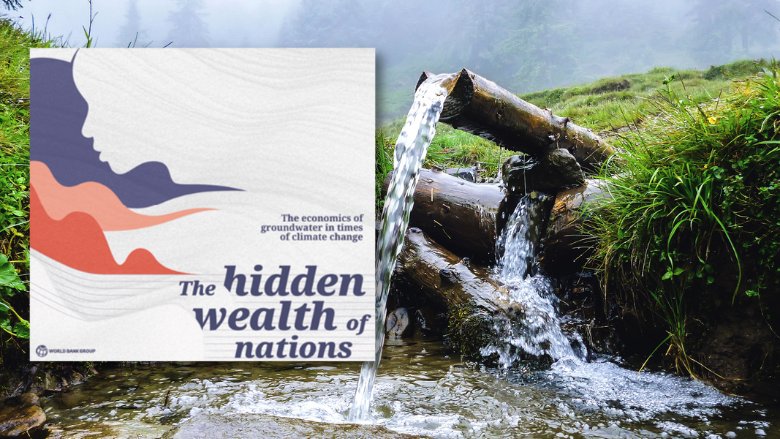About the report
Groundwater is our most important freshwater resource, but the lack of systematic analysis of its economic importance has evaded attention from policymakers and the general public–threatening the resource. The Hidden Wealth of Nations: The Economics of Groundwater in Times of Climate Change report offers new data and evidence that advances understanding of the value of groundwater, the costs of mismanagement, and the opportunities to leverage its potential.
Its findings also reflect on the policy issues policymakers confront when attempting to align the private and social costs of groundwater use. A central message of this report is that groundwater needs to be politically prioritized and should be carefully managed through integrated cross-sectoral action to benefit society, the economy, and the environment.
Download the main report.
Download the report annexes.
Download the background paper.
Read more about the report in ARABIC, FRENCH AND SPANISH
Key messages
Groundwater is nature’s insurance, serving to protect food security, reduce poverty, and boost resilient economic growth.
- Groundwater can buffer climatic shocks, reducing agricultural yield losses resulting from drought by nearly half.
- Access to groundwater improves food security and reduces child malnutrition.
- Groundwater can protect cities against day-zero-type events.
Groundwater can play a critical role in adapting to climate change, but only if action is taken to protect it.
- Groundwater mitigates climate change by sustaining a broad range of dependent ecosystems with carbon-sequestering vegetation, lakes, and swamps.
- It protects vulnerable communities by providing access to fresh water when surface water resources are scarce.
- As groundwater is depleted, societies become more vulnerable to climate shocks.
Groundwater has been undervalued, overexploited, and mismanaged.
- The range of groundwater use is highly variable across regions, with some countries overly reliant on the resource and others not using it enough.
- In most cases, groundwater is undervalued—or not valued at all. Valuing its benefits is essential in managing its equitable use.
- Growing depletion levels reduce buffering capacity in the face of higher temperatures and more variable precipitation associated with climate change.
- Depletion, degradation, and competition for groundwater threaten its sustainability, threatening to rob future generations of this resource.
Groundwater is a common-pool resource that needs to be properly valued and carefully managed to benefit society, the economy, and the environment.
- High-level political action is needed to ensure that the private and social costs of groundwater use are aligned, and that the benefits of pumping are weighed against associated extraction costs, as well as the costs imposed on other water users.
- Well-targeted policy and subsidy reforms, supported by integrated action across sectors, can ensure that the expansion of green energy and agricultural investment do not lead to the overexploitation, degradation, and mismanagement of groundwater resources and dependent ecosystems.
- The relationship between groundwater users sharing this common resource should be carefully managed for long-term sustainability.
